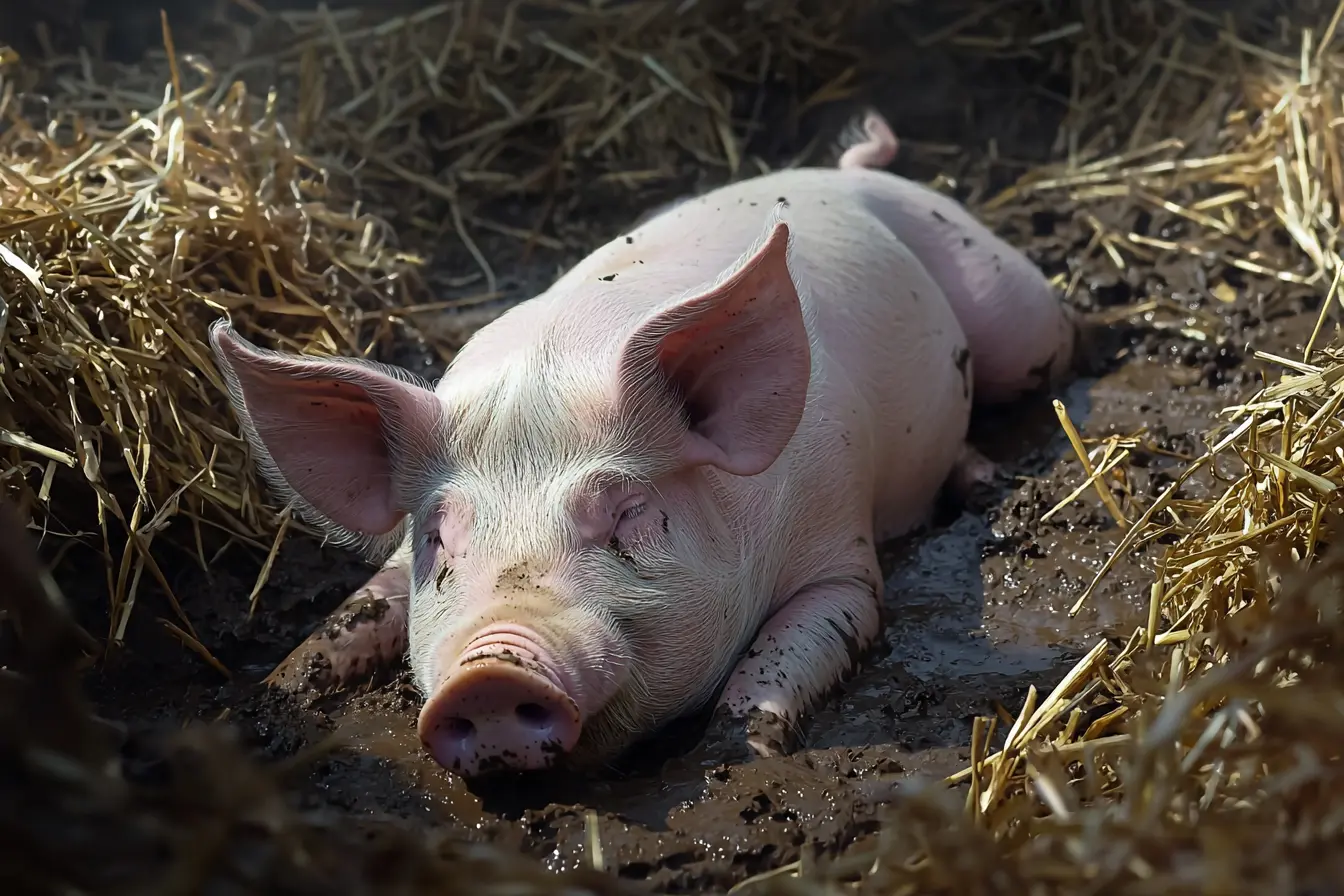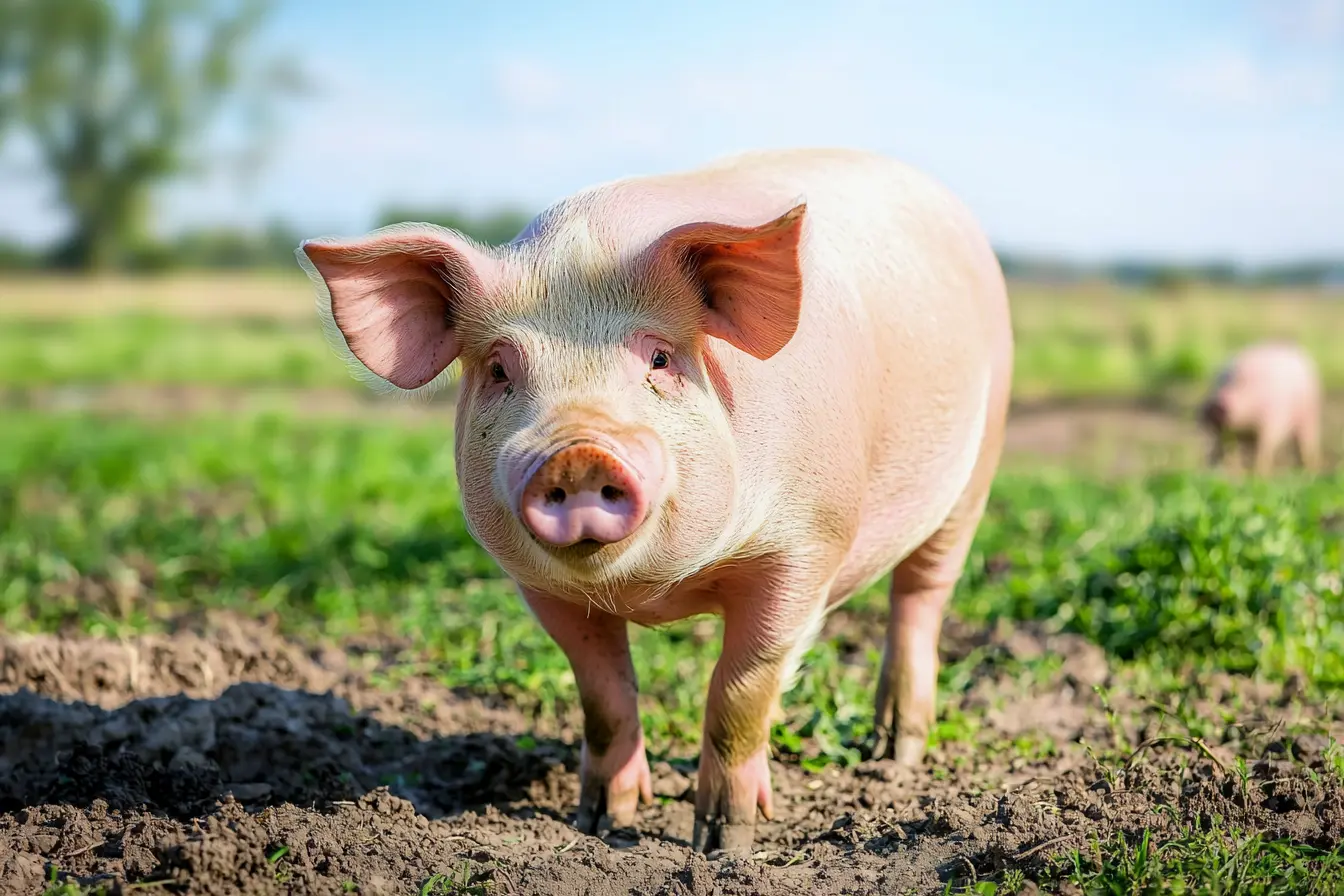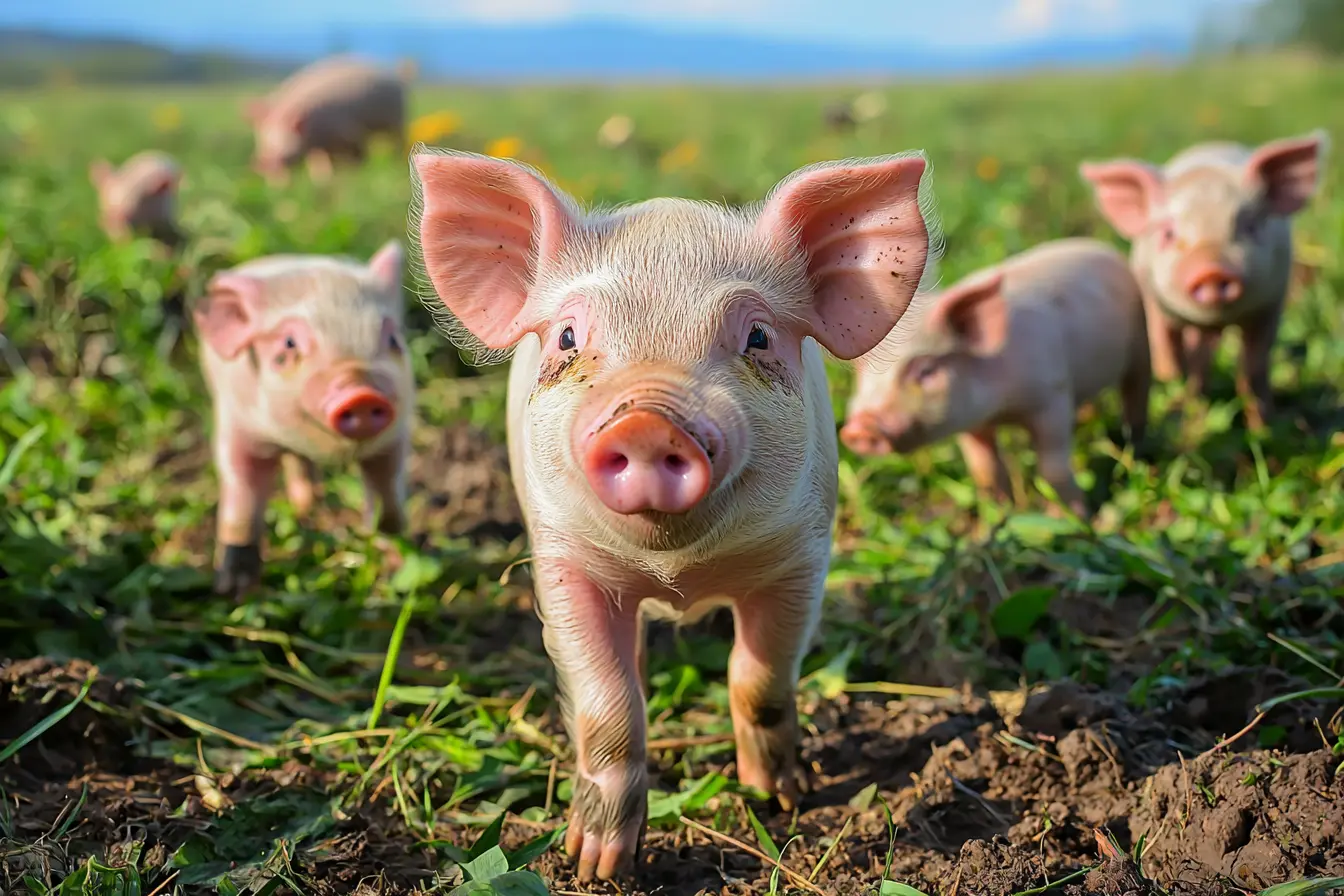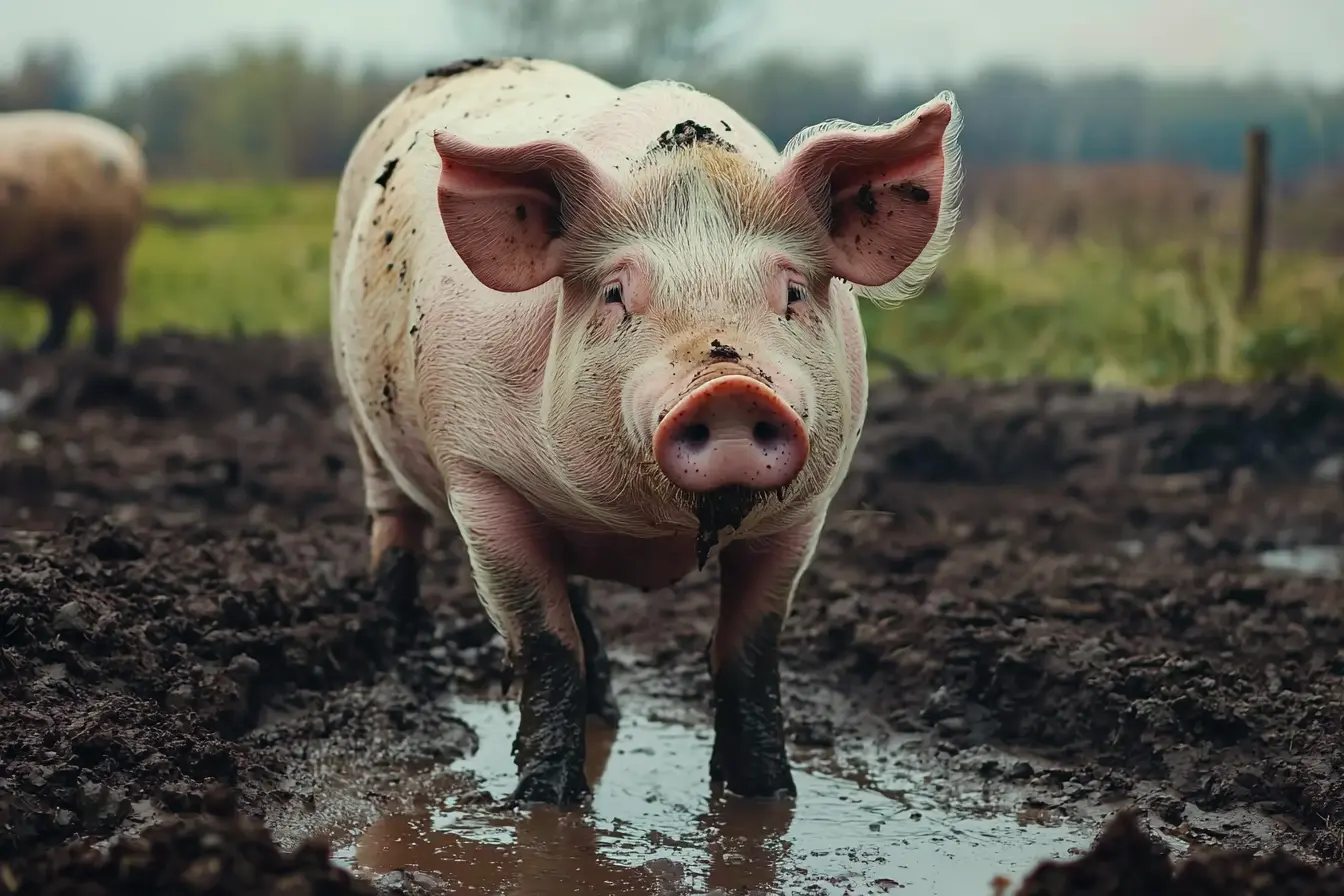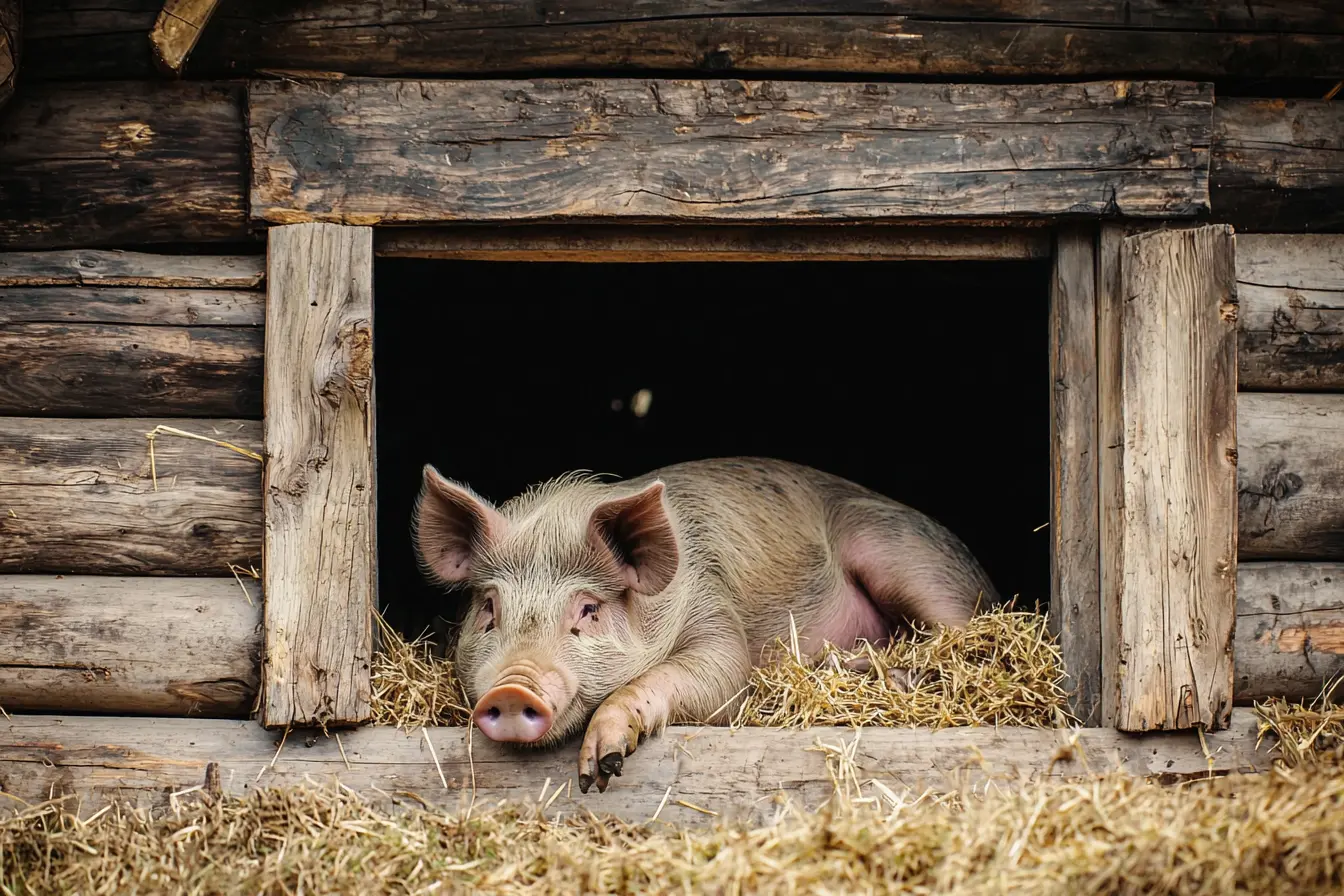
A Comprehensive Guide to Owning Pigs in the UK
Owning pigs can be a delightful and rewarding experience, providing not only companionship but also the potential for meat production and other by-products. However, pigs require dedicated care and management. Here’s everything a new pig owner in the UK needs to know to ensure a successful and enjoyable venture.
Choosing and Buying Pigs
1. Selecting the Right Breed: Different pig breeds serve various purposes. Traditional breeds like the Large Black, Gloucestershire Old Spots, and Tamworth are renowned for their meat quality. Modern commercial breeds such as the Large White and Landrace are often favoured for their growth rates and efficiency.
2. Sourcing Healthy Pigs: Buy pigs from reputable breeders or livestock markets. Look for pigs that are alert, active, and have bright eyes and clean noses. Avoid pigs with signs of illness such as coughing, lethargy, or visible wounds.
3. Consider Numbers and Companionship: Pigs are social animals and thrive in groups. Plan to keep at least two pigs to ensure they are happy and healthy.
Setting Up for Pigs
1. Housing: Pigs need a sturdy, dry shelter to protect them from the elements. A well-ventilated pigsty or ark with ample bedding such as straw will suffice. Ensure the shelter is easy to clean and provides enough space for the pigs to move around comfortably.
2. Fencing: Secure, strong fencing is essential to keep pigs contained. Pigs are excellent diggers and can escape through weak spots. Electric fencing can be particularly effective, but it must be regularly checked and maintained.
3. Land and Grazing: Pigs enjoy rooting and foraging, so provide them with a grassy or woodland area. Rotate grazing areas to prevent overuse and allow land recovery. Supplement their diet with fresh vegetables, fruits, and commercial pig feed.
4. Water: Ensure a constant supply of fresh water. Pigs require plenty of water daily, especially during hot weather or if they are lactating.
Daily Care and Management
1. Feeding: Pigs need a balanced diet to ensure proper growth and health. Provide a mix of commercial pig feed, fresh fruits, vegetables, and access to pasture. Avoid feeding them scraps that could contain harmful substances or diseases.
2. Health Care: Regular health checks are crucial. Be vigilant for signs of common pig ailments such as swine fever, foot and mouth disease, and respiratory infections. Establish a vaccination and deworming schedule with a vet.
3. Hoof and Dental Care: Regularly inspect and, if necessary, trim pigs' hooves to prevent overgrowth and lameness. Also, check their teeth to ensure they are not causing discomfort or problems.
4. Breeding: If you plan to breed pigs, understand the breeding cycle and the care required for sows and piglets. Ensure piglets receive colostrum shortly after birth for immunity.
5. Cleaning and Hygiene: Maintain cleanliness in the pigsty to prevent disease. Regularly remove manure and replace bedding. Clean and disinfect feeding and watering equipment frequently.
Legal and Regulatory Considerations
1. Animal Welfare Act 2006: Comply with the Animal Welfare Act, ensuring your pigs have proper living conditions, diet, and medical care.
2. Registration and Identification: Pigs must be registered with the Department for Environment, Food & Rural Affairs (DEFRA). Maintain accurate records of your pigs, including births, deaths, and movements.
3. Movement Records: Any movement of pigs, whether to a market, another farm, or a show, must be recorded and reported to DEFRA. This helps track and control the spread of diseases.
4. Biosecurity: Implement biosecurity measures to minimise disease risk. This includes controlling farm access, quarantining new or sick animals, and maintaining clean facilities.
Enjoying Pig Ownership
1. Meat Production: Raising pigs for meat can be a rewarding experience. Learn the process of raising, butchering, and selling pork. Local markets, direct sales, and farm shops can be excellent outlets.
2. Breeding and Piglets: Breeding pigs can be an enjoyable and profitable venture. Ensure you have the knowledge and resources to care for pregnant sows and piglets.
3. Agritourism and Education: Consider integrating agritourism into your farm. Pig feeding experiences, farm tours, and educational workshops can provide additional income and community engagement.
4. Community and Support: Join local pig farming groups or national organisations such as the Rare Breeds Survival Trust (RBST) or the National Pig Association (NPA). These groups offer valuable resources, support, and networking opportunities.
Owning pigs can be a delightful and profitable venture, combining the joy of working with these intelligent animals with the potential for a sustainable business. By following these guidelines and committing to their care, you'll ensure a successful and enjoyable pig farming experience. Happy farming!
Vets near you
Speciality vets
- Aquatics vet specialists
- Birds vet specialists
- Camelids vet specialists
- Cats vet specialists
- Cattle vet specialists
- Deer vet specialists
- Dogs vet specialists
- Equines vet specialists
- Exotic vet specialists
- Goats vet specialists
- Pigs vet specialists
- Poultry vet specialists
- Sheep vet specialists
- Small Mammals vet specialists
- Wild vet specialists
Vet facilities
- Accessible by public transport
- Blood testing
- Car park nearby
- Client car park
- Dentistry
- Diagnostic imaging
- Disabled public access
- Flea and worm treatments
- Microchipping
- Mobile services
- Neutering
- Open at weekends
- Out-of-hours service
- Referral interests
- Referrals only
- Street parking outside
- Toilets available
- Vaccinations
